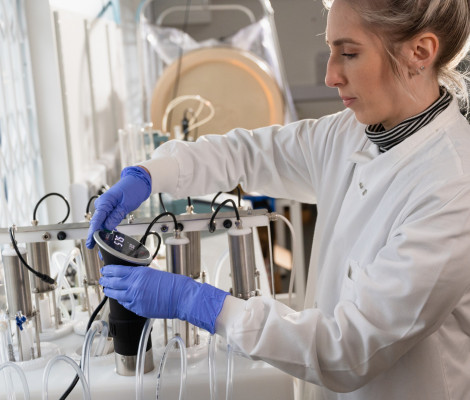
Biogas facilities
Our biogas facilities enable new/potential users of anaerobic digestion (AD) and biohydrogen to characterise their feedstock to establish its suitability for production of high gas yields.
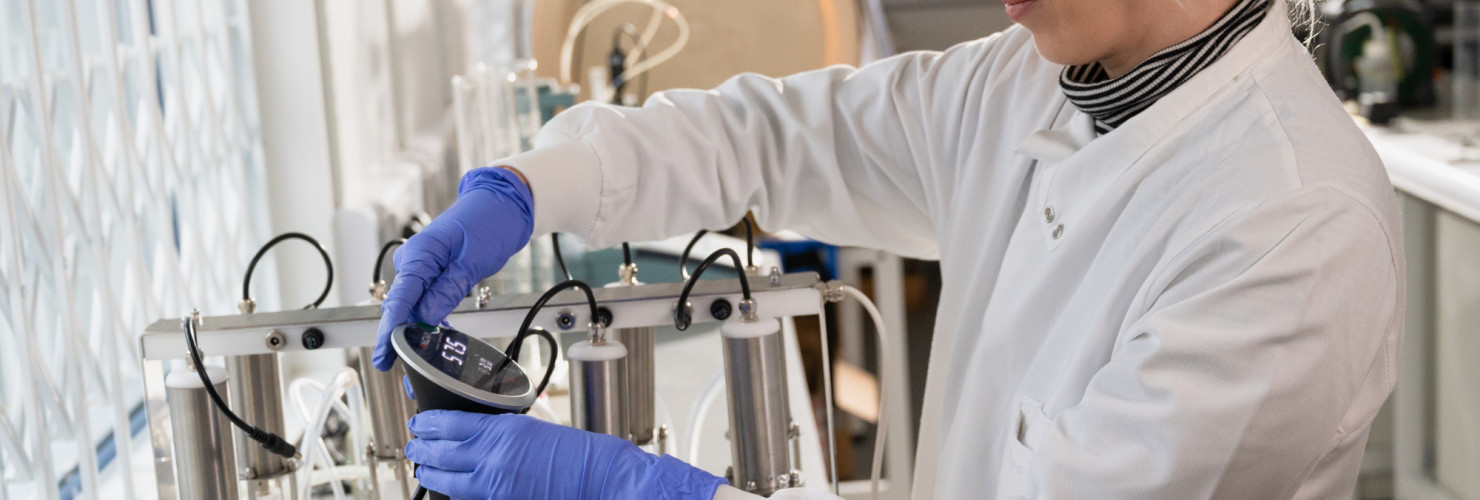
Our biogas facilities enable new/potential users of anaerobic digestion (AD) and biohydrogen to characterise their feedstock to establish its suitability for production of high gas yields. We also help existing users of AD systems to assess / validate modifications to their system, new feedstock pre-treatment methodologies and additives for biogas yield improvement.
Our biogas facilities comprise a range of equipment to enable analysis of anaerobic digestion of feedstocks to produce biomethane or biohydrogen:
Following on from the successful Hydrogen BECCS Innovation Programme Phase 1 funding for the H2Boost project, we and ten other partners have successfully been awarded £5 million for a phase 2 project. This is funded by the Net Zero Innovation Portfolio (NZIP) that has been awarded by the Department for Energy Security and Net Zero.
H2Boost will focus on demonstrating at scale a commercially viable and sustainable process for producing biohydrogen – a clean, gaseous biofuel created through microbial fermentation of organic waste.
The project aims to produce biohydrogen for the UK transport sector by integrating an advanced oxidation and enzymatic pre-treatment technology of bio-based feedstocks, conversion to bio-hydrogen by dark fermentation (DF) and down-stream processing of by-products via anaerobic digestion, microbial CO2 capture and storage.
Phase 2 will look at under-utilised, low-value feedstocks that will be subjected to different pretreatment conditions to improve biohydrogen yields and reduce the residency time of nutrient-rich streams in DF. The fermentation by-products, namely anaerobic digestion digestate, will be used as substrates for algal propagation and anaerobic digestion to achieve a closed-loop system for enhanced biomethane yield and carbon capture and storage (CCS).
We have a broad and integrated role in the project. As well as leading on the management of the project, our scientists are working on the lab scale trials and the 10L continuous trials as well as the testing of alternative feedstocks and enzymes. Our innovation advisors are also involved in the policy and regulatory considerations and organising the industry facing workshops.

Our biogas facilities enable new/potential users of anaerobic digestion (AD) and biohydrogen to characterise their feedstock to establish its suitability for production of high gas yields.
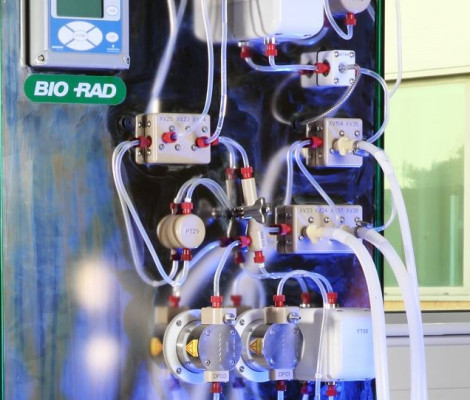
Used for purification and separation of complex organic mixtures.
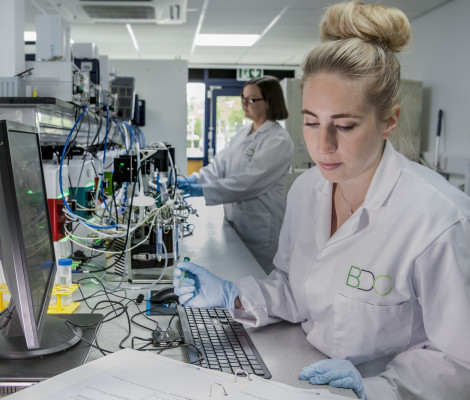
We have several bioreactor systems, which allow the development and scale up of fermentation processes from 500 mL to 30 L.
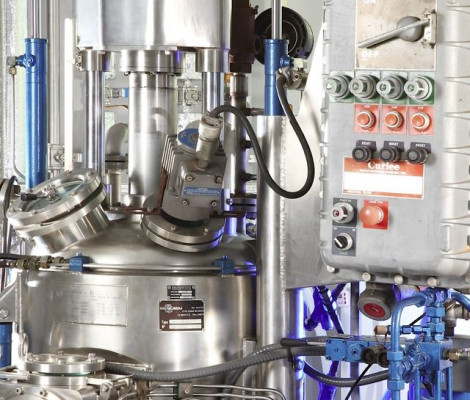
Our Guedu filter drier is used for separating solids and liquids from each other, before drying the products.
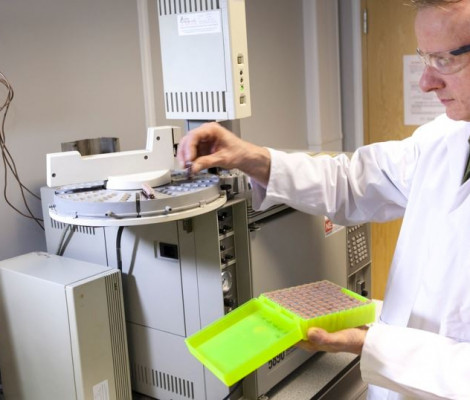
Gas chromatography (GC) is a flexible technique that allows separation and quantification of chemical substances found within a complex mixture.
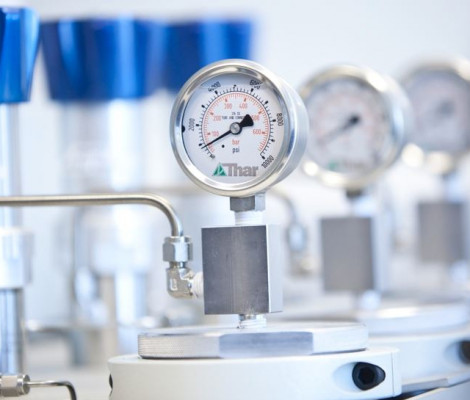
The Buchi Kilo Suite (ATEX Rated 65 L vessel) pilot scale glass reactor suite has a 65 L capacity, capable of operating under various modes including reaction, distillation, crystallisation and extraction.
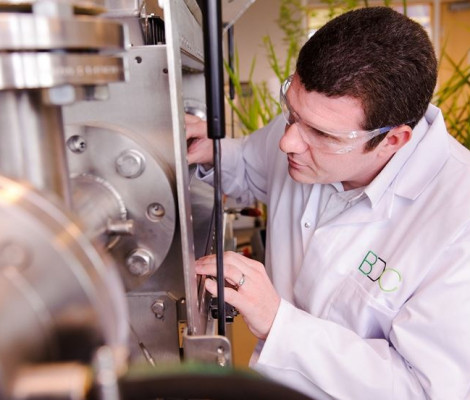
Our pyrolysis microwave allows heating up organic materials in the absence of oxygen (pyrolysis) for a wide range of industrial applications such as energy and chemicals production.
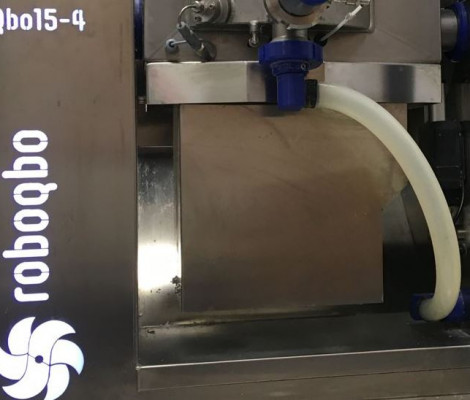
The RoboQbo 15-4 is a Universal Process Machine capable of processing high solid loading slurries upto 30% w/w (dependent on feedstock).
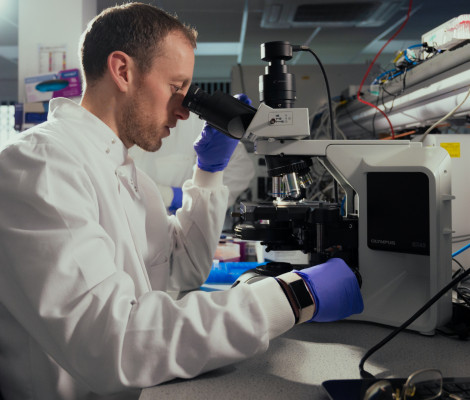
Our microbiology laboratory offers a range of equipment allowing users to safely handle, store and work with a variety of aerobic and anaerobic microbes, at ACDP hazard category II level.
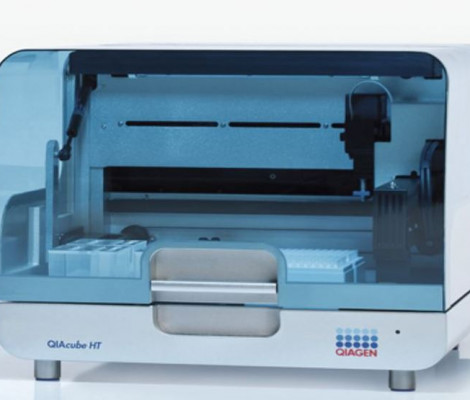
Qiagen QIAcube HT is an instrument for an automated mid- to high-throughput nucleic acid purification in 96-well format using silica membrane technology.

Our supercritical fluid extraction system at can extract chemical compounds from biomass materials.